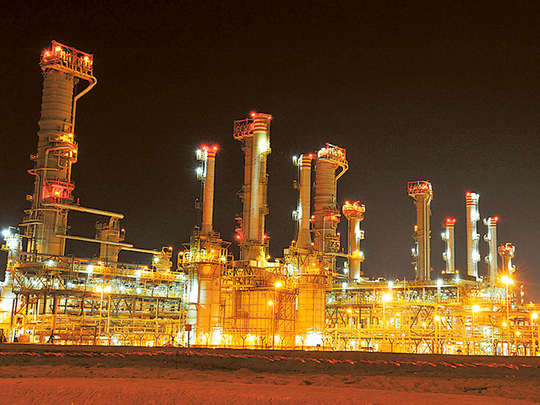
Dubai: The Organisation of the Petroleum Exporting Countries is still an effective economic cartel influencing prices despite the group’s recent impasse over its own production output.
The 12-member bloc of oil producing countries decided at the end of last month to leave its output ceiling at 30 million barrels a day in response to a global plunge in prices.
The group made the decision amid its own estimates that there is around 1.5 million barrels of excess global supply, as prices fell by more than 30 per cent in six months and the glut weighed on the market.
But experts say the group is still significant.
“Opec can always influence prices by cutting [or raising] production. But it has to balance this with trade-offs,” said Robin Mills, head of consulting at Manaar Energy in Dubai, by email.
The trade-offs tend to be lower volumes with higher prices or higher short-term volumes but lower long-term demand.
Opec’s decision to keep production “as is” is largely perceived to have been driven by Saudi Arabia, the world’s largest oil producer, which has said it is unwilling to give up crucial market share. In the past, Saudi Arabia has cut its own production to balance Opec’s output and global supply.
Cohesion
“They [Opec] are just trying to show they can still move things. They are still a cartel that controls prices but in reality everyone knows it’s not where you get a unified decision,” said Shwan Zulal, an associate fellow at King’s College and the director of London-based Carduchi Consulting, by Skype.
However, Saudi Arabia’s decisive role to keep production levels among the group unchanged does not signal a split within the organisation.
“Opec’s cohesion largely depends on Saudi Arabia’s ability to enforce its will. This ability is greatest when prices are low and other members are weakened,” Mills said.
Some of Opec’s own members, facing budget cuts in lieu of dwindling oil revenues, are now looking to increase their production even as prices remain far below last year’s $100 (Dh367) a barrel average.
“Currently, it’s difficult for Opec to act cohesively because some key members (Iran, Iraq, Libya) are not able/willing to adhere to quotas,” Mills said.
But Zulal said, “That’s what Opec is, it’s a very dysfunctional family, but that hasn’t stopped them from making strong decisions in the past.”
The 12-member oil bloc is scheduled to next meet in June next year in Vienna where it decided last month to maintain the status quo.












